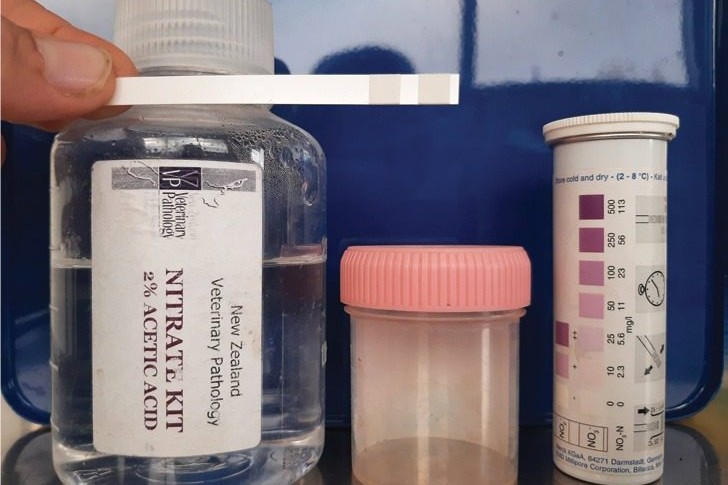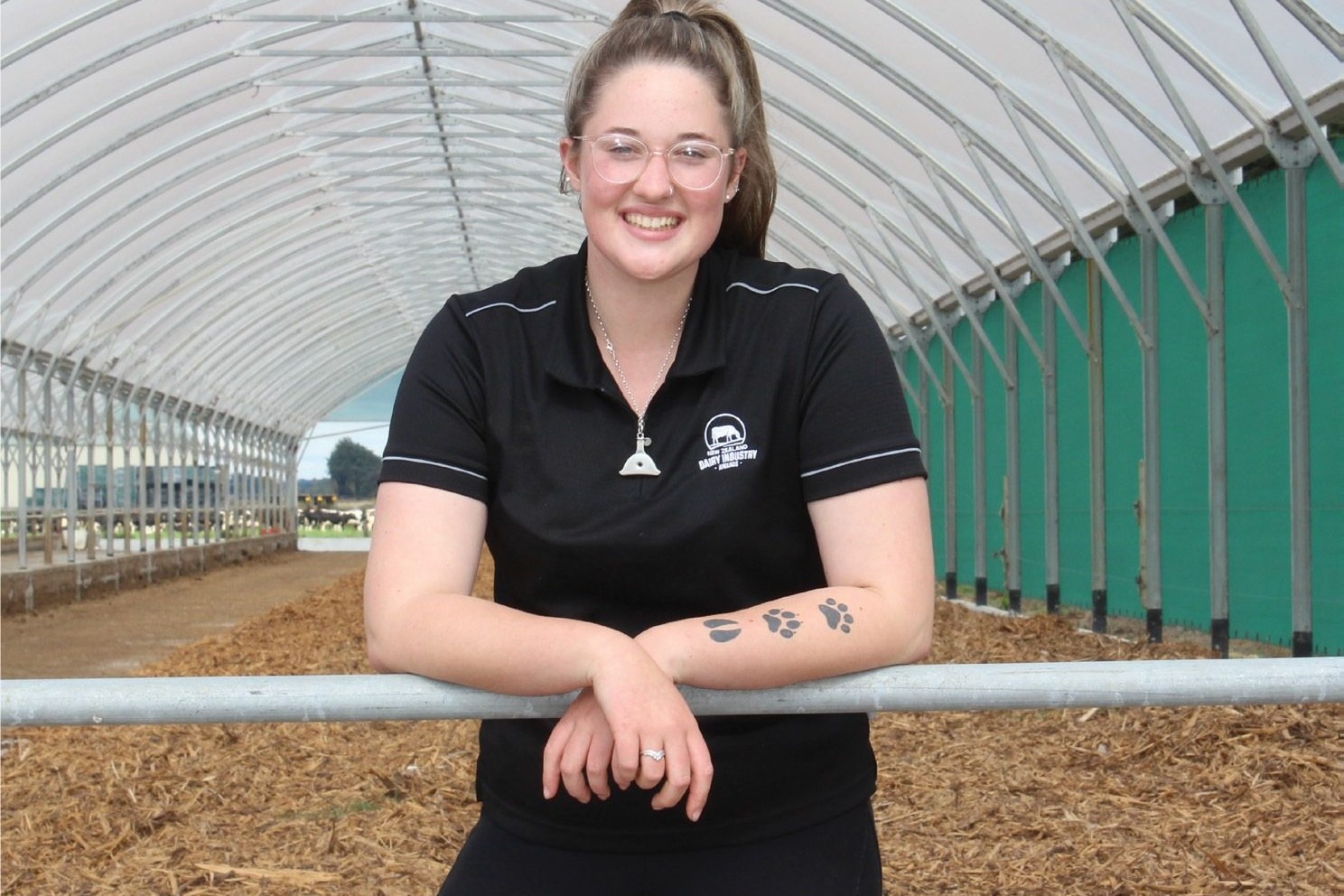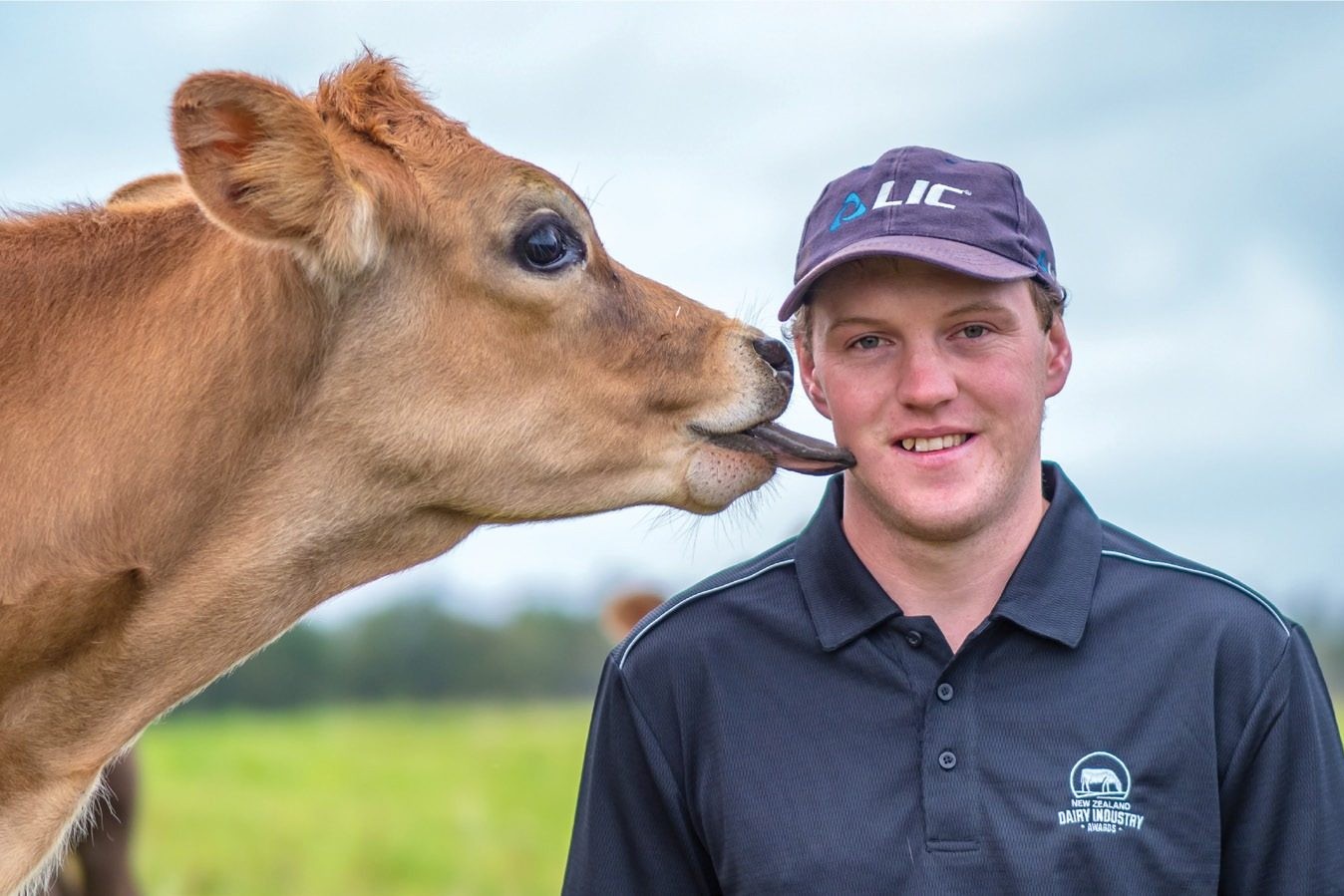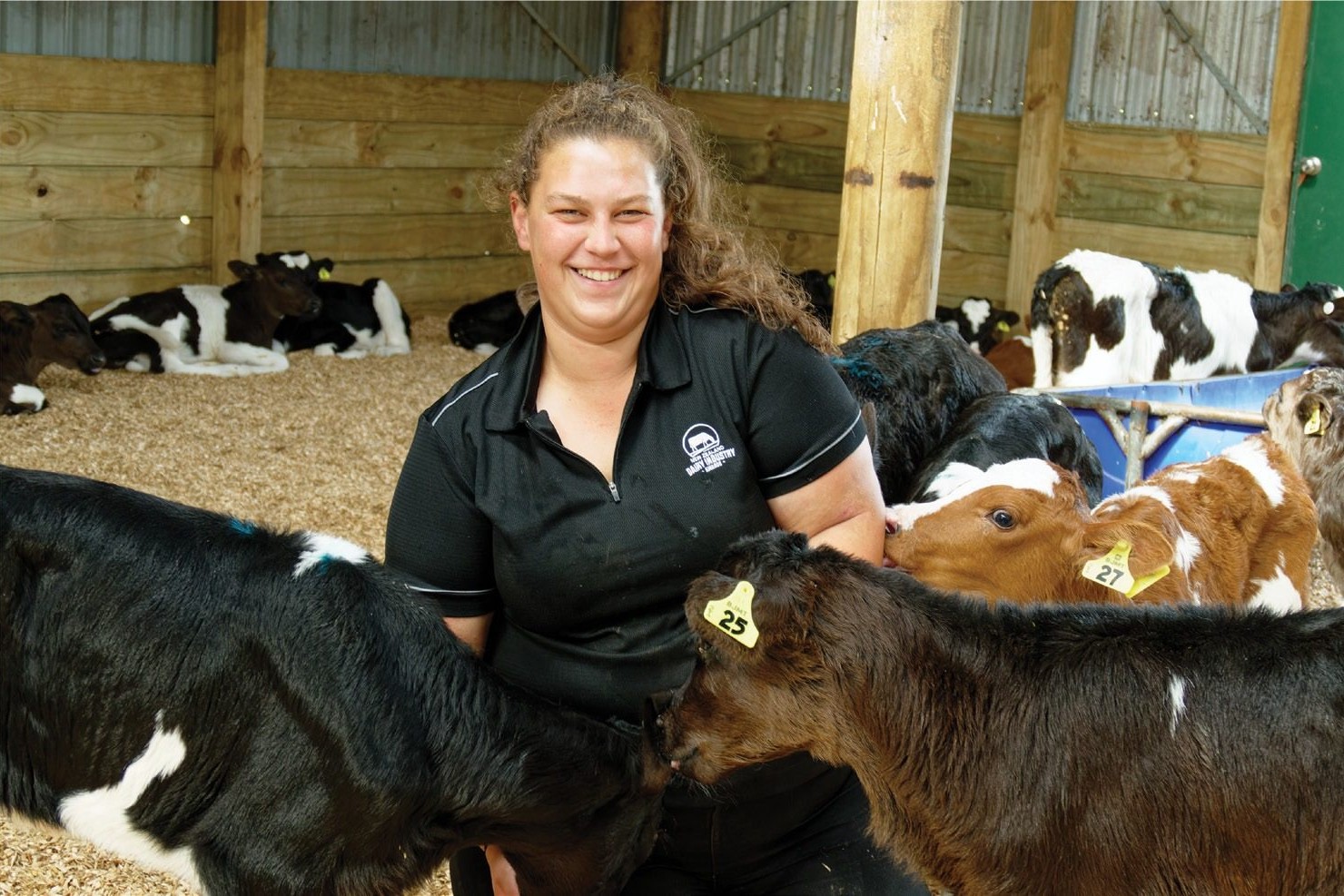Words by: Anne Hardie, photo by Ross Nolly
Diego Gomez came to New Zealand when he was 21 because he wanted to experience the best pasture-based dairy industry in the world.
Twelve years later, the former agribusiness lecturer and researcher from Argentina has been named Taranaki’s Dairy Manager of the Year in the Dairy Industry Awards. Last year he was placed third in the competition and this year he was back to win it and he also claimed three merit awards.
He knew the theory behind dairy farming back in Argentina, from the wellbeing of the cow and milk quality through to their relationship with profitability, but New Zealand was his chance to put it all into practice and learn from the best.
“For pasture-based dairy farming, you come to New Zealand because nobody does it better than New Zealand. Every aspect of dairying is being researched within the industry and you can see all that information because it is made available to us. Not every country is like that. In Argentina, we have been dairy farming longer than New Zealand, but we don’t do it as well as New Zealand and we aren’t as profitable as New Zealand.”
His first job was a dairy assistant on a South Island dairy farm. Since then, he has worked in both islands and along the way completed every single AgITO dairy course for the practical skills and environmental knowledge. A four-year stint back in Argentina developing businesses including a bakery and a restaurant convinced him that a dairy career in New Zealand was the way to go. He missed dairy farming and the industry here had career opportunities that were not possible in Argentina.
“Here, if you are focused and have a plan for your life, you can start at the bottom and work your way up to sharemilking and you can do that in a short period of time. You don’t have to be from a farming family to achieve this.”
Bilingual family
When he returned to New Zealand in 2017, he brought his wife, Gisela, and two children Emma, now seven and Ignacio now four, who had to adapt to a new country and its vastly different culture. That first year was dedicated to settling the family into NZ culture and Diego says their biggest fear was they would not fit in. As it happened, they slotted easily into the NZ way of life, with the kids quickly becoming bilingual and an easy acceptance within the dairy industry.
“The dairy industry relies on good people and it doesn’t matter where you come from. If you can bring value to the farm, you are welcome. The best policy in New Zealand is honesty and that makes it a good country to live in. Everyone has to be really honest for you to get ahead.”
He now manages 380 cows for the Michael D Burr Trust on its 142ha dairy farm near Stratford, with one other employee on the farm through the year and another employed for the busy calving period.
“I think about 400-700 cows is a golden number. It’s easier on people, the cows and the land,” he says. It makes it easier to achieve that “thin line between sustainability and production”.
“You are gaining more in the long run from being sustainable than trying to push your system to extremes which is really stressful on people, the land and the animals.”
This season, production is on target to achieve 152,000kg milksolids on a system 2 which he says is achieved by planning ahead, being realistic about feed availability and by ensuring he doesn’t waste resources.
“Pasture quality is the core of dairy farming and your best ally if you understand it. Keeping staff aware of what is going on on the farm is also advantageous and making them understand they play a vital role.”
While pasture quality is at the core of the business, Diego says the focus needs to be on every aspect of the farm operation to achieve targets.
“You miss one aspect and you don’t reach your production targets. So I try to focus on everything. I think the financials are one of the most important legs of the business because you can’t make any decisions on the farm without looking at them.
“After the financials, it is your feed budget and the wellbeing of the cows. Your way of life depends on it. If you look after your cows, you have less costs and that’s more profitability. And it’s less stress.
“I think everything is important, that is why dairy farming is so demanding; we have to know a lot about a lot of things and some days we are vets, mechanics, milk harvesters and weather wizards.”
The next step is gaining residency because until they have that, Diego can’t apply for contract milking jobs or sharemilking contracts to build equity toward farm ownership.
“Of course farm ownership is the main goal, but there are still many steps to enjoy before getting there.
“Anything I have achieved so far wouldn’t be possible without the unconditional help and union of my family. My wife Gisela is always supporting my decisions and helping me analyse every situation that comes along.”
One of their goals is to build their businesses to the stage where they can create job opportunities because that is one way they can give back to the community. Gisela operates two e-commerce businesses from home around fashion clothing and home décor – ww.trama.co.nz and www.elleboheme.com -which are helping to build their family business and reach their goals.





